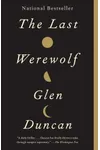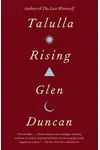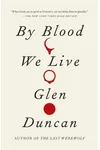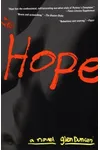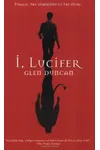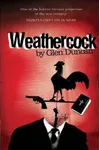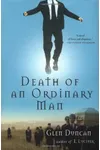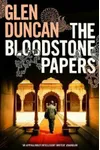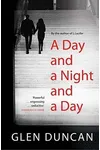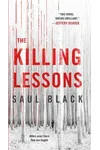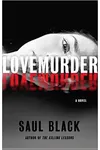Picture a British storyteller who turned werewolves into soulful philosophers and gave Lucifer a wicked sense of humor—meet Glen Duncan! Born in 1965 in Bolton, Lancashire, this genre-defying author has captivated readers with his bold, witty novels that blend horror, mystery, and fantasy. From the devilish charm of I, Lucifer to the primal thrills of his Last Werewolf trilogy, Duncan’s work is a wild ride through the human (and not-so-human) psyche.
With an Anglo-Indian heritage and a knack for philosophical musings, Duncan crafts stories that are as thought-provoking as they are entertaining. Whether he’s writing under his own name or his thriller-loving pseudonym Saul Black, his books refuse to be boxed in, earning him a spot among Britain’s most intriguing contemporary authors.
The Making of Glen Duncan
Glen Duncan grew up in Bolton, Lancashire, immersed in a world shaped by his Anglo-Indian family. He studied philosophy and literature at Lancaster and Exeter universities, fueling his love for big ideas and sharp prose. In 1990, he moved to London, working as a bookseller while penning stories in his spare time. A 1994 trip to India with his father, partly a roots odyssey and partly research for his later novel The Bloodstone Papers, sparked his creative fire. Duncan then roamed the United States by Amtrak, drafting his debut novel, Hope, which hit shelves in 1997 to critical acclaim.
Glen Duncan’s Unforgettable Stories
Duncan’s novels are a kaleidoscope of genres, blending dark humor, existential depth, and cinematic flair. His breakthrough, I, Lucifer (2002), imagines the Devil inhabiting a human body for a month, weaving a riotously funny tale that’s equal parts satire and soul-searching. The book’s film rights were snapped up, with stars like Ewan McGregor and Daniel Craig once linked to the project.
The Last Werewolf trilogy—The Last Werewolf (2011), Talulla Rising (2012), and By Blood We Live (2014)—redefines werewolf lore with a sexy, philosophical edge. Centered on Jake Marlowe, the last of his kind, and later Talulla, a fierce werewolf mother, the series explores love, survival, and the monstrous side of humanity. Critics praised its visceral prose and emotional depth, with readers calling it a “horny werewolf book” done right.
Under the pseudonym Saul Black, Duncan ventured into gritty thrillers with The Killing Lessons (2015) and Lovemurder (2016), showcasing his knack for pulse-pounding suspense. Novels like The Bloodstone Papers (2006), set in 1940s India, and A Day and a Night and a Day (2009), tackling race and terror, highlight his ability to weave complex themes into gripping narratives.
Why Glen Duncan Matters
Glen Duncan’s work stands out for its refusal to play by genre rules. His novels, praised by critics like William Skidelsky for their uncategorizable nature, challenge readers to rethink myths and morality. By blending highbrow ideas with visceral thrills, he’s carved a niche that feels both timeless and modern. His influence ripples through contemporary horror and fantasy, inspiring writers to embrace the messy, human heart of supernatural tales.
Duncan’s versatility—spanning literary fiction, horror, and thrillers—has earned him accolades from The Times Literary Supplement, which named him one of Britain’s top young novelists. His stories resonate with readers who crave wit, depth, and a touch of the unexpected, making him a cult favorite with a growing legacy.
- Birth: 1965, Bolton, Lancashire, UK
- Key Works: I, Lucifer, The Last Werewolf trilogy, The Bloodstone Papers
- Pseudonym: Saul Black (thrillers)
- Fun Fact: I, Lucifer’s film rights were optioned with a star-studded cast in talks.
Ready for a literary adventure? Snag I, Lucifer or The Last Werewolf and dive into Glen Duncan’s wickedly clever world!
